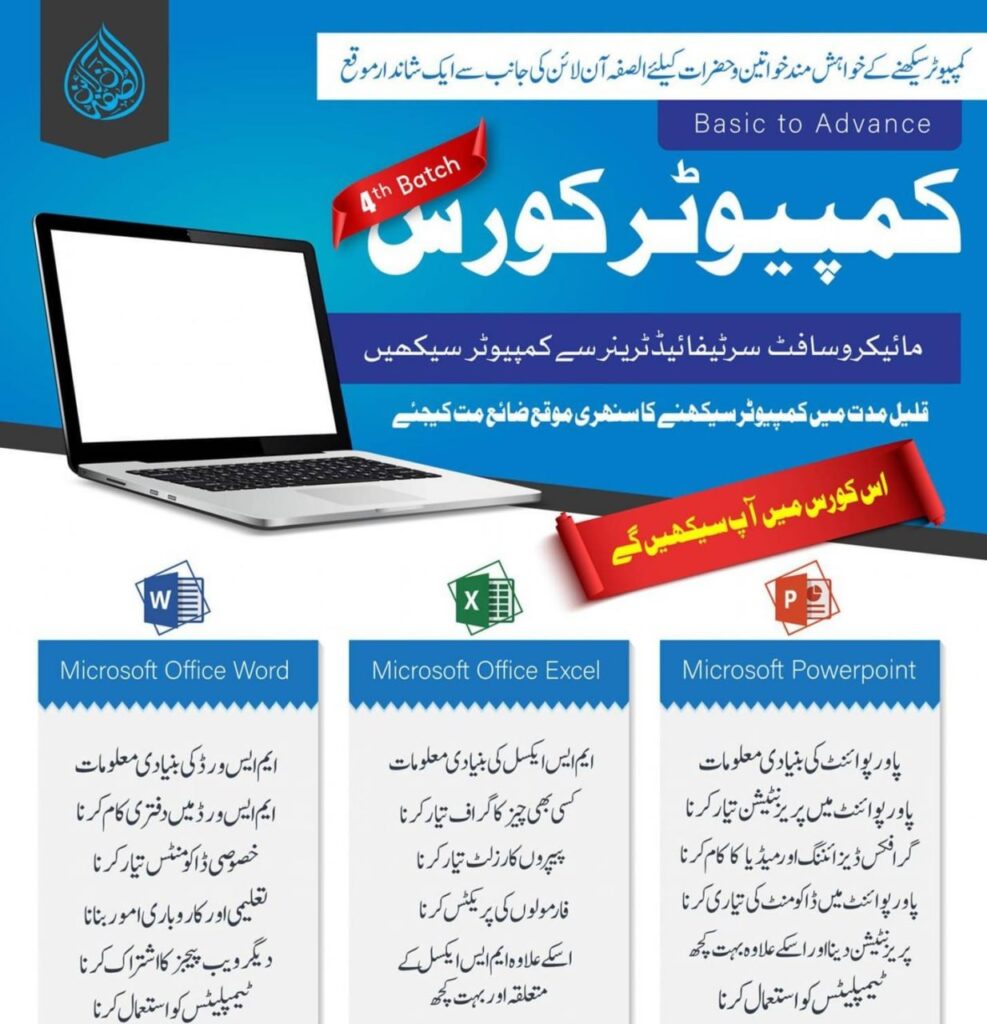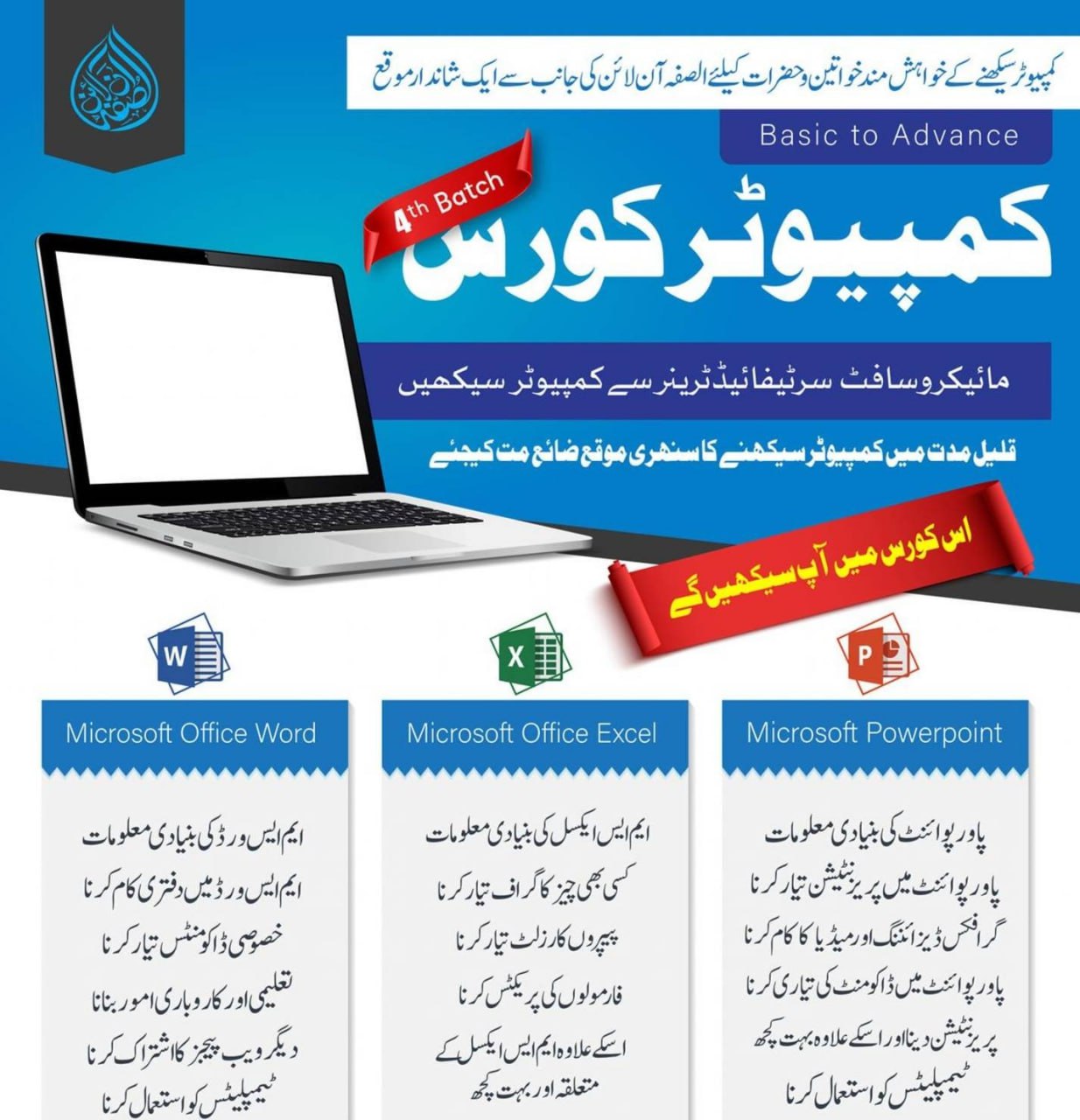
In today’s digital age, computer literacy is no longer optional—it’s essential. Whether you’re a beginner looking to understand the basics or a professional aiming to master advanced concepts, a structured computer course can help you achieve your goals. This article will guide you through the journey from basic to advanced computer skills, highlighting the key areas of learning and their importance in the professional world.
1. Why Learn Computer Skills?
Computers are the backbone of modern industries. From education and healthcare to finance and entertainment, every sector relies on technology. Here’s why investing in computer education is crucial:
- Career Opportunities: Proficiency in computer skills opens doors to high-demand jobs like software development, data analysis, cybersecurity, and more.
- Efficiency: Computers streamline tasks, saving time and effort in both personal and professional settings.
- Global Connectivity: The internet and computer networks connect people worldwide, enabling collaboration and communication.
- Problem-Solving: Computers help analyze data, automate processes, and solve complex problems.
2. Basic Computer Skills: Building the Foundation
Before diving into advanced topics, it’s essential to master the basics. A strong foundation ensures you can navigate more complex concepts with ease.
Key Topics in Basic Computer Courses:
- Introduction to Computers: Understand the components of a computer (hardware and software) and how they work together.
- Operating Systems: Learn to use popular operating systems like Windows, macOS, and Linux.
- File Management: Organize, save, and retrieve files and folders efficiently.
- Basic Software Applications: Gain proficiency in word processing (Microsoft Word, Google Docs), spreadsheets (Excel, Google Sheets), and presentations (PowerPoint, Google Slides).
- Internet Basics: Learn how to browse the web, use search engines, and understand online safety (passwords, phishing, etc.).
- Email Communication: Master email etiquette, sending attachments, and managing inboxes.
Why Start with Basics?
- Builds confidence in using technology.
- Prepares you for more advanced topics.
- Essential for everyday tasks in both personal and professional life.
3. Intermediate Computer Skills: Expanding Your Knowledge
Once you’re comfortable with the basics, it’s time to explore intermediate-level skills. This stage focuses on enhancing productivity and understanding more complex tools.
Key Topics in Intermediate Computer Courses:
- Advanced Software Applications: Dive deeper into spreadsheet functions (formulas, pivot tables), database management (Microsoft Access), and graphic design tools (Canva, Adobe Photoshop).
- Programming Basics: Learn the fundamentals of programming languages like Python, JavaScript, or HTML/CSS for web development.
- Networking Basics: Understand how computers connect (LAN, WAN, Wi-Fi) and the basics of IP addresses and routers.
- Cloud Computing: Explore cloud storage (Google Drive, Dropbox) and cloud-based applications.
- Cybersecurity Fundamentals: Learn about antivirus software, firewalls, and best practices for online security.
Why Learn Intermediate Skills?
- Enhances your ability to handle complex tasks.
- Prepares you for specialized roles in IT and other industries.
- Improves problem-solving and analytical thinking.
4. Advanced Computer Skills: Mastering the Digital World
Advanced computer skills are designed for those who want to specialize in specific areas or pursue careers in technology. These courses require a solid understanding of basic and intermediate concepts.
Key Topics in Advanced Computer Courses:
- Programming and Software Development: Master languages like Java, C++, or Python. Learn about algorithms, data structures, and software development methodologies (Agile, Scrum).
- Web Development: Build dynamic websites using HTML, CSS, JavaScript, and frameworks like React or Angular.
- Data Science and Analytics: Learn to analyze large datasets using tools like Python, R, and SQL. Explore machine learning and artificial intelligence.
- Cybersecurity: Dive into ethical hacking, penetration testing, and network security.
- Cloud Computing and DevOps: Understand cloud platforms (AWS, Azure) and DevOps practices for software deployment.
- Database Management: Learn to design and manage databases using SQL, MongoDB, or Oracle.
- IT Project Management: Gain skills in managing IT projects, including budgeting, scheduling, and team coordination.
Why Pursue Advanced Skills?
- Opens doors to high-paying careers in tech.
- Keeps you competitive in a rapidly evolving job market.
- Enables you to innovate and create cutting-edge solutions.
5. Choosing the Right Course
With countless options available, selecting the right computer course can be overwhelming. Here are some tips to help you decide:
- Identify Your Goals: Are you looking to improve general skills, switch careers, or specialize in a specific field?
- Check the Curriculum: Ensure the course covers the topics you’re interested in.
- Consider the Format: Choose between online, in-person, or hybrid courses based on your schedule and learning style.
- Look for Certifications: Accredited courses with recognized certifications add value to your resume.
- Read Reviews: Check feedback from past students to gauge the course’s quality.
6. Tips for Success in Computer Courses
- Practice Regularly: Hands-on experience is key to mastering computer skills.
- Stay Updated: Technology evolves rapidly, so keep learning and stay informed about the latest trends.
- Join Communities: Engage with online forums, coding communities, or local tech groups to network and learn from others.
- Build Projects: Apply your skills to real-world projects to showcase your abilities to potential employers.
- Be Patient: Learning advanced skills takes time and effort. Stay consistent and motivated.
7. Career Opportunities After Completing Computer Courses
The skills you gain from computer courses can lead to a wide range of career opportunities, including:
- Software Developer/Engineer
- Data Analyst/Scientist
- Web Developer/Designer
- Cybersecurity Specialist
- Cloud Architect
- IT Project Manager
- Database Administrator
- AI/ML Engineer
